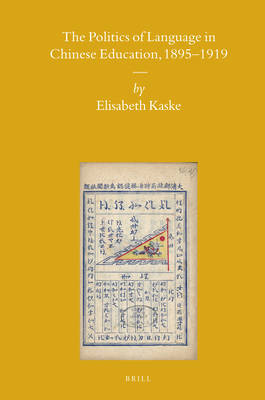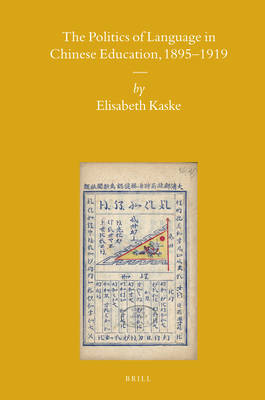
- Afhalen na 1 uur in een winkel met voorraad
- Gratis thuislevering in België vanaf € 30
- Ruim aanbod met 7 miljoen producten
- Afhalen na 1 uur in een winkel met voorraad
- Gratis thuislevering in België vanaf € 30
- Ruim aanbod met 7 miljoen producten
Omschrijving
The study examines the origins of the "literary revolution" proclaimed in 1917 which laid the foundation for the replacement of the classical language by the vernacular as China's national language and medium of national literature. A unique, multifaceted approach is used to explain the political significance of the classical/vernacular divide against the backdrop of social change that followed the Sino-Japanese War of 1894-5. Seeing education as the central battleground for all debates on language, the study in six thoroughly documented chapters investigates the language policy of the Qing and Republican governments, vernacular journalism of the revolutionaries, the activities of urban script reformers, the linguistic thought of the national essence advocates, and the emergence of a scholarly interest in the vernacular in academic circles.
Specificaties
Betrokkenen
- Auteur(s):
- Uitgeverij:
Inhoud
- Aantal bladzijden:
- 560
- Taal:
- Engels
- Reeks:
- Reeksnummer:
- nr. 82
Eigenschappen
- Productcode (EAN):
- 9789004163676
- Verschijningsdatum:
- 1/11/2007
- Uitvoering:
- Hardcover
- Formaat:
- Genaaid
- Afmetingen:
- 165 mm x 246 mm
- Gewicht:
- 1020 g

Alleen bij Standaard Boekhandel
+ 699 punten op je klantenkaart van Standaard Boekhandel
Beoordelingen
We publiceren alleen reviews die voldoen aan de voorwaarden voor reviews. Bekijk onze voorwaarden voor reviews.










